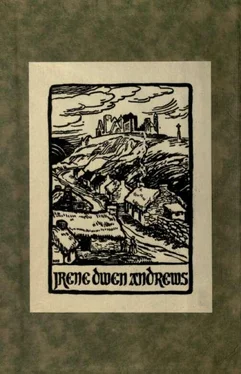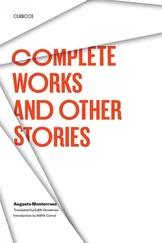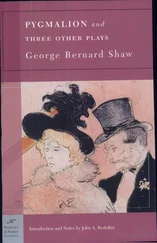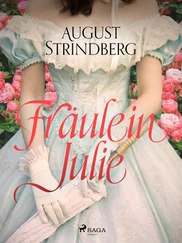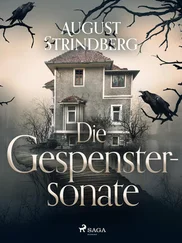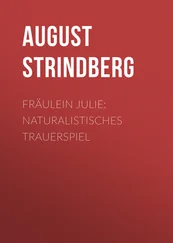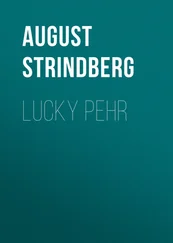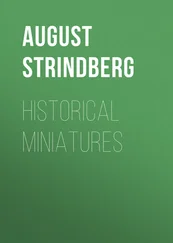August Strindberg - Miss Julie and Other Plays
Здесь есть возможность читать онлайн «August Strindberg - Miss Julie and Other Plays» весь текст электронной книги совершенно бесплатно (целиком полную версию без сокращений). В некоторых случаях можно слушать аудио, скачать через торрент в формате fb2 и присутствует краткое содержание. Город: New York, Год выпуска: 1924, Издательство: Boni and Liveright, Inc., Жанр: Драматургия, на английском языке. Описание произведения, (предисловие) а так же отзывы посетителей доступны на портале библиотеки ЛибКат.
- Название:Miss Julie and Other Plays
- Автор:
- Издательство:Boni and Liveright, Inc.
- Жанр:
- Год:1924
- Город:New York
- ISBN:нет данных
- Рейтинг книги:5 / 5. Голосов: 1
-
Избранное:Добавить в избранное
- Отзывы:
-
Ваша оценка:
- 100
- 1
- 2
- 3
- 4
- 5
Miss Julie and Other Plays: краткое содержание, описание и аннотация
Предлагаем к чтению аннотацию, описание, краткое содержание или предисловие (зависит от того, что написал сам автор книги «Miss Julie and Other Plays»). Если вы не нашли необходимую информацию о книге — напишите в комментариях, мы постараемся отыскать её.
Miss Julie and Other Plays — читать онлайн бесплатно полную книгу (весь текст) целиком
Ниже представлен текст книги, разбитый по страницам. Система сохранения места последней прочитанной страницы, позволяет с удобством читать онлайн бесплатно книгу «Miss Julie and Other Plays», без необходимости каждый раз заново искать на чём Вы остановились. Поставьте закладку, и сможете в любой момент перейти на страницу, на которой закончили чтение.
Интервал:
Закладка:
Lise.Leave off, please, and don’t talk so silly. [Gets up.] If you only knew—but…
Daughter.And I’m sure you’re as good as you’re beautiful; we always think that down below here when we look up at you above there, with your delicate chiseled features, where trouble hasn’t made any wrinkles, where envy and jealousy have not drawn their hateful lines
Lise.Look here, Helen; I really think you’re quite mad on me.
Daughter.Yes, I am that, too. I wish I were like you a bit, just as a miserable whitlow-grass is like an anemone, and that’s why I see in you my better self, something that I should like to be and never can be. You have tripped into my life during the last summer days as lightly and as delicately as an angel; now the autumn’s come: the day after to-morrow we go back to town—then we shan’t know each other any more—and we mustn’t know each other any more. You can never draw me up, dear, but I can draw you down—and I don’t want to do that! I want to have you so high, so high and so far away, that I can’t see your blemishes. And so good-bye, Lise, my first and only friend.
Lise.No, that’s enough. Helen, do you know—who I am? Well—I—am your sister.
Daughter.You What can you mean?
Lise.We have—the same father.
Daughter.And you are my sister, my little sister? But what is my father then? But of course he must be captain of a yacht, because your father is one. How silly I am! But then he married, after. Is he kind to you? He wasn’t to my mother.
Lise.You don’t know. But aren’t you awfully glad to have found a little sister— one too who isn’t so very loud?
Daughter.Oh, rather, I’m so glad that I really don’t know what to say. [Embrace.] But I really daren’t be properly glad because I don’t know what’s going to happen after all this. What will mother say, and what will it be like if we meet papa?
Lise.Just leave your mother to me. She can’t be far away now. And you keep in the background till you are wanted. And now come and give me a kiss, little ’un. [They kiss.]
Daughter.My sister. How strange the word sounds, just like the word father when one has never uttered it.
Lise.Don’t, let’s go on chattering now, but let’s stick to the point. Do you think that your mother would still refuse her permission if we were to invite you—to come and see your sister and your father?
Daughter.Without my mother? Oh, she hates your—my father so dreadfully.
Lise.But suppose she has no reason to do so? If you only knew how full the world is of concoctions and lies and mistakes and misunderstandings. My father used to tell the story of a chum he used to have when he first went to sea as a cadet. A gold watch was stolen from one of the officers’ cabins and— God knows why!— suspicion fell on the cadet. His mates avoided him, practically sent him to Coventry, and that embittered him to such an extent that he became impossible to associate with, got mixed up in a row and had to leave. Two years afterward the thief was discovered, in the person of a boatswain; but no satisfaction could be given to the innocent boy, because people had only been suspicious of him. And the suspicion will stick to him for the rest of his life, although it was refuted, and the wretch still keeps a nickname which was given to him at the time. His life grew up like a house that’s built and based on its own bad fame, and when the false foundation is cut away the building remains standing all the same; it floated in the air like the castle in “The Arabian Nights.” You see—that’s what happens in the world. But even worse things can happen, as in the case of that instrument maker in Arboga, who got the name of being an incendiary because his house had been set fire to; or as happened to a certain Anderson, whom people called Thief Anders because he had been the victim of a celebrated burglary.
Daughter.Do you mean to say that my father hasn’t been what I always thought he was?
Lise.Yes, that’s just it.
Daughter.This is how I see him sometimes in dreams, since I lost all recollection of him—isn’t he fairly tall, with a dark beard and big blue sailor eyes?
Lise.Yes—more or less!
Daughter.And then—wait, now I remember. Do you see this watch? There’s a little compass fastened on to the chain, and on the compass at the north there’s an eye. Who gave me that?
Lise.Your father. I was there when he bought it.
Daughter.Then it’s he whom I’ve seen so often in the theater when I was playing. He always sat in the left stage box, and held his opera glasses trained on me. I never dared to tell mother because she was always so very nervous about me. And once he threw me flowers— t but mother burned them. Do you think it was he?
Lise.It was he; you can count on it that during all these years his eye has followed you like the eye of the needle on the compass.
Daughter.And you tell me that I shall see him—that he wants to meet me? It’s like a fairy tale.
Lise.The fairy tale’s over now. I hear your mother. You get back —I’m going first, to face the fire.
Daughter.Something dreadful’s going to happen now, I feel it. Why can’t people agree with each other and be at peace? Oh, if only it were all over! If mamma would only be nice. I will pray to God outside there to make her soft-hearted —but I’m certain He can’t do it—I don’t know why.
Lise.He can do it, and He will, if you can only have faith, have a little faith in happiness and your own strength.
Daughter.Strength? What for? To be selfish? I can’t do it. And the enjoyment of a happiness that is bought at the cost of someone else’s unhappiness cannot be lasting.
Lise.Indeed? Now go out.
Daughter.How can you possibly believe that this will turn out all right?
Lise.Hush!
SCENE IV
Previous characters. The MOTHER.
Lise.Madam.
Mother.Miss—if you don’t mind.
Lise.Your daughter
Mother.Yes, I have a daughter, even though I’m only a “Miss,” and indeed that happens to many of us, and I’m not a bit ashamed of it. But what’s it all about?
Lise.The fact is, I’m commissioned to ask you if Miss Helen can join in an excursion which some visitors have got up.
Mother.Hasn’t Helen herself answered you?
Lise.Yes; she has very properly answered that I should address myself to you.
Mother.That wasn’t a straightforward answer. Helen, my child, do you want to join a party to which your mother isn’t invited?
Daughter.Yes, if you allow it.
Mother.If I allow it! How can I decide what a big girl like you is to do? You yourself must tell the young lady what you want; if you want to leave your mother alone in disgrace, while you gad about and have a good time; if you want people to ask after mamma, and for you to have to try and wriggle out of the answer: “She has been left out of the invitation, because and because and because.” Now say what you really want to do.
Lise.My dear lady, don’t let’s beat about the bush. I know perfectly well the view Helen takes of this business, and I also know your method of getting her to make that particular answer which happens to suit you. If you are as fond of your daughter as you say you are, you ought to wish what is best for her, even though it might be humiliating for you.
Читать дальшеИнтервал:
Закладка:
Похожие книги на «Miss Julie and Other Plays»
Представляем Вашему вниманию похожие книги на «Miss Julie and Other Plays» списком для выбора. Мы отобрали схожую по названию и смыслу литературу в надежде предоставить читателям больше вариантов отыскать новые, интересные, ещё непрочитанные произведения.
Обсуждение, отзывы о книге «Miss Julie and Other Plays» и просто собственные мнения читателей. Оставьте ваши комментарии, напишите, что Вы думаете о произведении, его смысле или главных героях. Укажите что конкретно понравилось, а что нет, и почему Вы так считаете.
